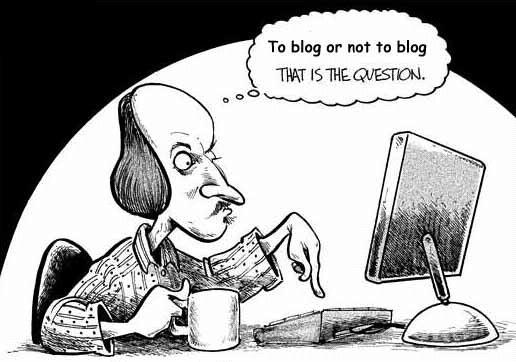
by Bret Capranica | Apr 20, 2009 | Featured Articles, Ordinary Pastor, Pastoral Ministry, Technology
In my quest to live off of the world of free applications for a month, I’ve shed my addiction to Microsoft’s Outlook and have completely moved to Google. I’m not sure I’ll ever go back to Outlook. Some of this I have reported on in my previous post regarding Gmail. But to be more specific in regard to Outlook: First, here’s many of the ways I used MS Outlook: Grabbing mail from multiple e-mail addresses Rules that pulled mail into particular folders. I.e., my inbox was restricted to only priority mail from church members, pastors, my wife, and a few others I needed to hear from quickly. All other mail went into the “Other” folder. MS Exchange Server. Through a tech company we have been using, they set us up with Exchange, which has allowed instant synchronizing of calendars, tasks, e-mail, and contacts. Organizing mail into folders for quick reference. I had only four folders: Inbox, Kel (my wife), Pastors, Members, Other. I could search a folder for finding an e-mail. I relied on search folders to keep up with mail that I needed to respond to but did not have the time to handle in two minutes or less. Calendar. I used a personal and a church/public folder. My public folder was available to staff and our receptionist. Tasks. I heavily used the Franklin Covey overlay for Outlook. If you know anything about the Covey system, this overlay organized Outlook to look like the Covey paper planner, and also brought e-mail in. I actually loathed to use Outlook without this overlay ““ Outlook, without this element is a...

by Bret Capranica | Apr 6, 2009 | Featured Articles, Ordinary Pastor, Pastoral Ministry, Technology
Word Processing I’m wiggling out of the Microsoft strangle hold ““ well at least for a month. My goal is to live in the world of the free (or close to free) market of desktop and web apps, looking to see if cheaper, but high quality alternatives exist for the ordinary pastor. Ordinary pastors do not have IT departments at their church. IT budgets are small, perhaps non-existent in the majority of ordinary churches. But, technology is a given and a necessity in the world of today’s ministry. April is my time to test the alternatives. First up: word processing (I’ll include spreadsheets, presentation, and publication software). Microsoft Word (Excel, Power Point) is (are) the standard. Every other program tends to look up to it and pattern themselves after it. A few alternatives exist. I will be using Open Office during my trial (I may look at Zoho). I am impressed with Office 2007. It took me a little while to find all the features since they significantly changed the user interface. But, I’ve adapted and find it helpful and productive. Compared to free, it is quite expensive. Yes, you can get a copy for less than $100.00 (especially if you are a student). Many educational institutions require it. Can the free sources meet the challenge and provide an equally good product for the needs of an ordinary pastor? I find myself typing on a word processor many hours of most days of my week. Writing, taking notes, producing documents for meetings fills my time ““ a word processor is essential. Here’s what I use a word processor for...
by Bret Capranica | Apr 4, 2009 | Pastoral Ministry
C.J. Mahaney recently posted some excellent interviews with some well-known Christian personalities. But now, he’s about to open the door on some very ordinary guys. This ordinary pastor here at THE CAPRANICA, is looking forward to this series. “Ordinary”...

by Bret Capranica | Mar 23, 2009 | Blogging, Featured Articles, Ordinary Pastor, Pastoral Ministry
Wouldn’t blogging be persona non grata in the life of the truly ordinary pastor? Maybe a few years ago, but no longer. I would suspect that the majority of pastors blogging today are among the ordinary variety. It helps that more than 99% of the pastors in our country are ordinarily flavored, so you would expect that the same percentage of pastors blogging will be ordinary pastors. With that in mind, why should a pastor blog? I wish more extraordinary pastors blogged ““ I mean really blogged. Not like those guys who have their staff post excerpts from the books. I wish they would actually take a half-hour a day and write something about their life, ministry, personal discipline, reading habits, family life, and the very unique experiences they have in ministry. It’s good to hear from some of the extraordinary guys who share from the overflow of their vast amount of time in the Scriptures and years of experience. But I also like hearing from the average Joe. In fact, I think there are a host of reasons why an ordinary pastor should blog (I have a few pastors in mind and would love to get them started – I may publicly expose them if they continue to resist). Here’s my list. It humanizes the ministry, allowing people to see the past the ivory tower facade. It allows you to speak to issues you could not cover in your sermon (even though your sermon was too long already). It gives another opportunity to write ““ and writing helps a pastor to be more clear and concrete with histhoughts....
by Bret Capranica | May 12, 2008 | Blogging, Ordinary Pastor
Abraham Piper, over at the Desiring God blog, recently put up a post for those who are unfamiliar with the beauty and grandeur of RSS. I’ve been an RSS fanatic for a few years now. But what is RSS, how could it be helpful (or harmful) and more fundamentally, should a truly ordinary pastor bother with blogs or the technology associated with RSS? If you follow more than 2 blogs and are not using an RSS reader, you are wasting more time than you should as you waste time reading blogs. While I do have a Google-Reader account, I rarely use it. Instead, I’ve been a FeedReader user almost since I began reading blogs. If you don’t know what RSS is or how to get it set up, check out Abraham Piper’s step-by-step approach to Google Reader (link at the end of the post). Also see Tim Ferriss’ interview with Robert Scoble and see how he keeps up with over 600 RSS feeds a day. Google Reader seems to be an exceptionally popular means for feeding RSS. It is very simple and once you’ve eaten the Google fruit you tend to want to immerse yourself in all things Google. Here are a few benefits: It Won’t Slow You Down. The up-side of Google Reader is that it is not an additional software application running on your computer, so it won’t slow your system down regardless of how many feeds you follow. Go Mobile. Where I do use Google Reader is in connection with my Blackberry. I imported my OPML file into Google reader and using Viigo on my phone,...










